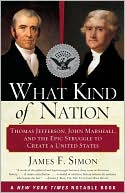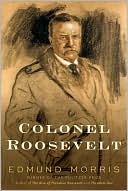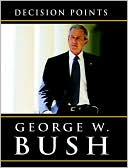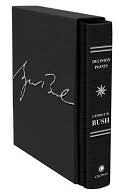What Kind of Nation: Thomas Jefferson, John Marshall, and the Epic Struggle to Create a United States
Search in google:
The bitter and protracted struggle between President Thomas Jefferson and Supreme Court Chief Justice John Marshall defined the basic constitutional relationship between the executive and judicial branches of government. More than one hundred fifty years later, their clashes still reverberate in constitutional debates and political battles.In this dramatic and fully accessible account of these titans of the early republic and their fiercely held ideas, James F. Simon brings to life the early history of the nation and sheds new light on the highly charged battle to balance the powers of the federal government and the rights of the states. A fascinating look at two of the nation's greatest statesmen and shrewdest politicians, What Kind of Nation presents a cogent, unbiased assessment of their lasting impact on American government. Publishers Weekly Simon (a former Time editor, now a law professor at NYU) examines the decades of conflict between the states' rights views of Thomas Jefferson and the federalist beliefs of John Marshall. In 1801, at the end of Adams's presidency, Marshall accepted the Supreme Court chief justice's position and Jefferson became the nation's third president. That set the stage for years of competition between the two philosophies of government, especially the two visions of the judiciary, represented by the principal antagonists of Simon's history. Simon deftly explains how Jefferson and Marshall maintained a faeade of civility in their public pronouncements while unleashing blistering mutual vituperation privately. Ultimately, as Simon demonstrates, Marshall prevailed. His technique was subtlety itself. In his opinion in Marbury v. Madison, Marshall gave an ostensible victory to Madison (Jefferson's vice president) but reached that result by asserting the authority of the Supreme Court to declare acts of Congress unconstitutional. That assertion had far-reaching implications for consolidating the federal government's power. Once the Supreme Court became the ultimate interpreter of the Constitution, the court repeatedly exercised its authority to invalidate state laws and court decisions inconsistent with the federal Constitution. Simon usefully narrows his focus to a handful of key decisions by the Marshall court, showing how the justice's concept of what kind of nation the U.S. should be progressively swept aside Jefferson's belief that state and federal governments were equal sovereigns. Simon's book illuminates the origins of a national political debate that continues today. (Mar.) Copyright 2001 Cahners Business Information.
Prologue151."Swindling Propositions"392."The Reign of Witches"493.A Sense of Duty634.Defending the President855.Prelude to a Revolution1046."The Fangs of Jefferson"1187."The Least Dangerous" Branch1388.Mr. Marbury's Missing Commission1739.A "Bungling Way" to Remove Judges19110.Treason Against the United States22011.Final Battles260Epilogue292Source Notes303Acknowledgments327Index329








